Agriculture
“The Taliban have destroyed all fruit trees in order to destroy our livelihood permanently.” report the inhabitants of the once fertile Shamalie plain north of Kabul. Shelter Now is raising funds for new orchards.
In the fertile Shamalie plain, once known for fruit growing, most fruit plantations were destroyed in the civil war. For reforestation Shelter Now distributes young fruit trees to families living there. They make a small financial contribution of their own. The plantations serve many purposes: they are part of the “groundwater management program” in this region, they provide the families with healthy fruit, surpluses can be marketed and thus improve the family income.
For 20 Euros Shelter Now can give 10 fruit tree seedlings to a family.
Fruit trees-bees-people:
This cooperation helps all
Deforestation is a huge problem in Afghanistan. It is partly responsible for the great drought in the country in recent years. Forests have a positive effect on the water table. Countless trees were destroyed during the 25 years of civil war, forests were cleared. They fell victim to the “scorched earth policy” of the opposing warring parties.
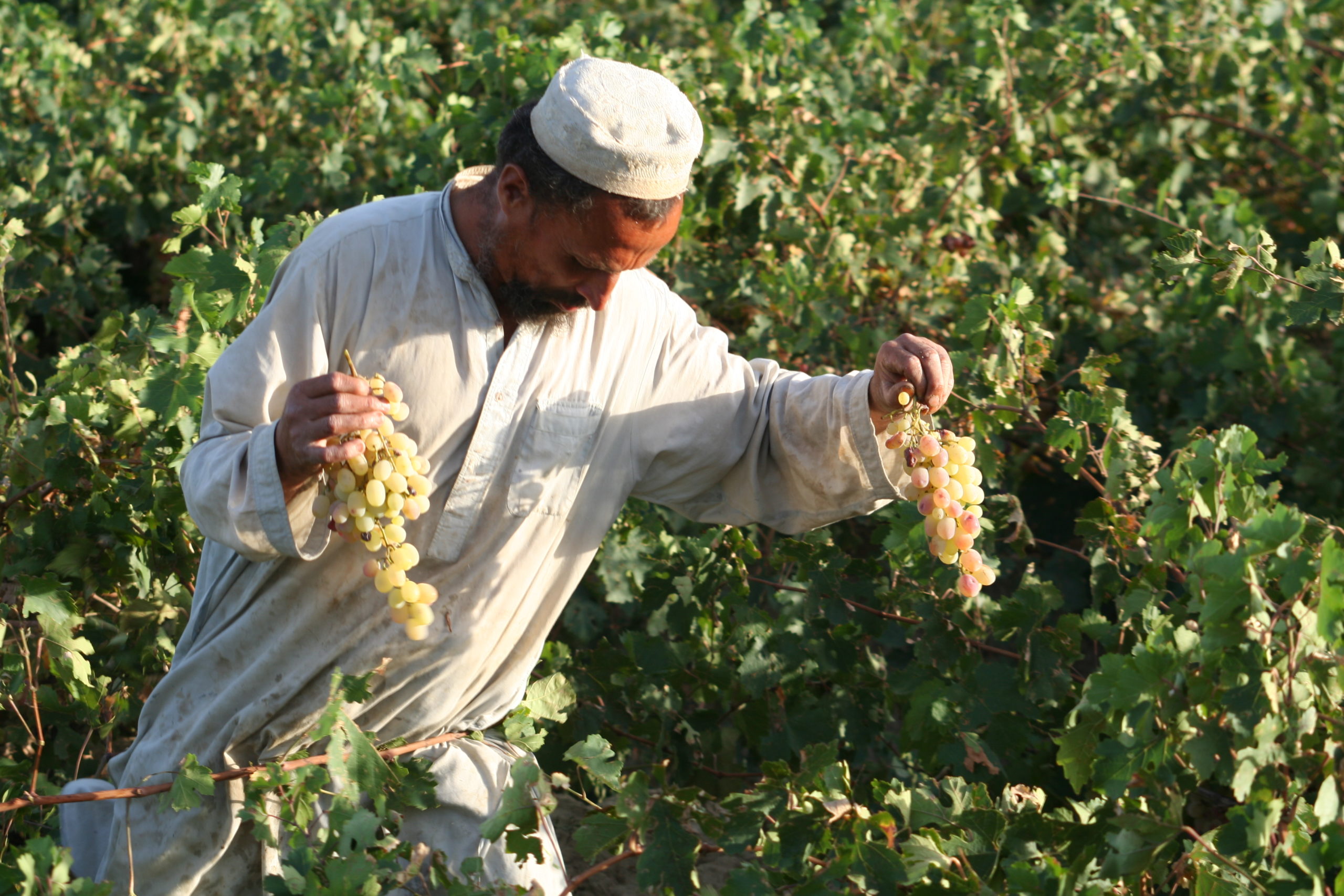
Our agricultural projects are largely based on micro-credits
In different parts of Afghanistan we distribute fruit tree and berry fruit seedlings and give farmers and families training in pruning and propagation.
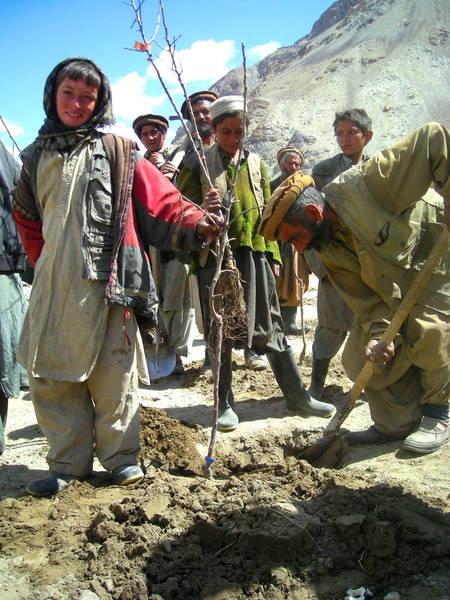
Planting fruit trees in Afghanistan
A fruit tree costs depending upon sort between € 3.50 and € 4.50, a berry fruit bush approx. € 0.70
A cutting costs only 50 Cent. The fruit growers learn something about fruit tree propagation right away.
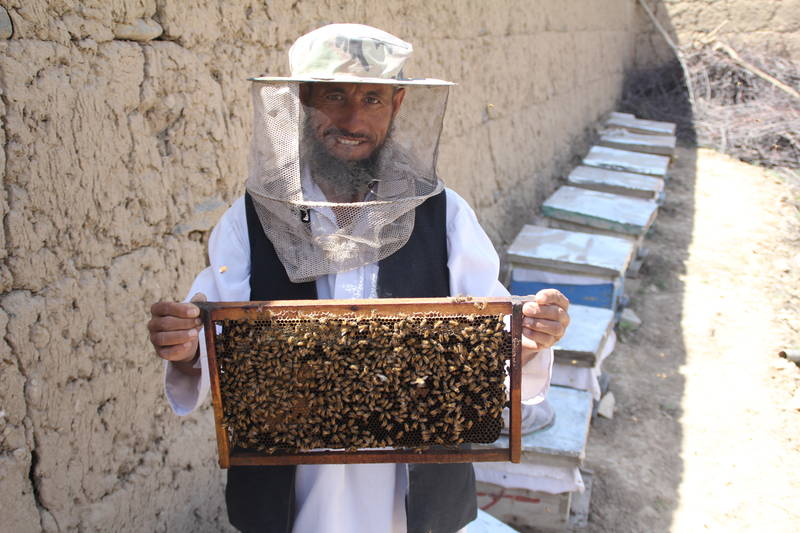
Bees and honey
Bees naturally belong to fruit trees. They not only collect the nectar of the flowers, but contribute with their proverbial diligence to fertilization and rich harvest.
In Afghanistan, honey is particularly valued for its contribution to healthy nutrition and is therefore extremely expensive. Honey is mostly imported, so there is a market for the domestic production, as well as for the export.
Shelter Now teaches families about beekeeping and honey production. The bees find enough pasture both in the existing and in the new fruit plantations, especially since many wild flowers bloom in this area in spring and summer.
Poor families get 5 bee colonies each, several families share an extractor with which they can extract the honey from the combs. In addition, they receive the appropriate specialist training. After 2 years at the latest, when the bees have multiplied, the families return five of the new bee colonies to the project so that further families can be provided with start-up equipment. The bee colonies are treated as “micro-credit” so to speak.
A bee colony with box costs 120 Euro.
In addition the costs for the training, medicines and the transport of the bees into the winter camp come.
Please help us to take action!
Our help is only possible thanks to your support!
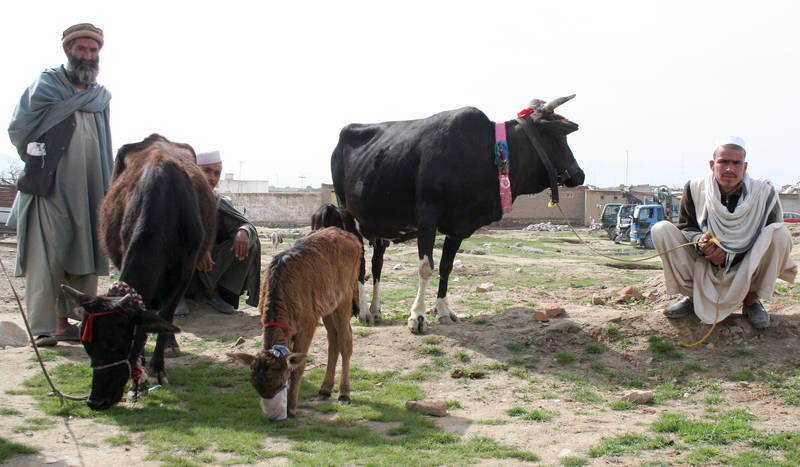
Sheep and cows as micro-credit
Cows are the livelihood of many village families. Most of the cattle died during the war events.
We have developed a system that allows families to get cows back: Families receive a credit to buy a pregnant cow or a cow with a calf. This enables them to do business and pay back the loan after one to two years. The money is then available to another family. A selected “cow committee” is responsible for the repayment and new allocation of the loans.
In this way, about 300 families have received cows in the meantime, and of course they have had offspring…
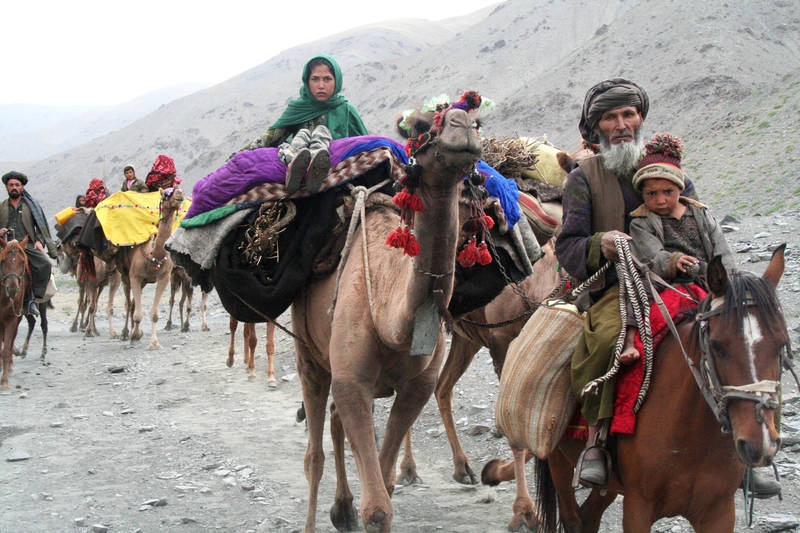
The people of the Kuchi…
…lives semi-nomadic. They have no cows, but camels, sheep and goats. During the five years of extreme drought under the Taliban regime, they lost 75% of their animals. Many clans are thereby completely impoverished.
According to the principle of the cow project they receive a loan for five ewes per family. Three families receive one breeding ram each. Here a “sheep committee” ensures that the loans are repaid on time and passed on. It works! So far about 1,000 families have received sheep. Those who received the first loans can now live off their flock of sheep.
Long-term report on the Kuchi project (in german) can be downloaded here:
Interim Report Kuchi Sheep Project.pdf (650 KB)
